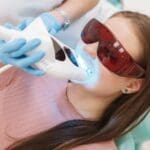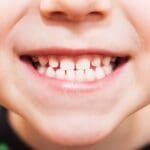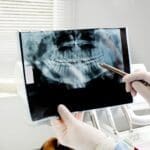If you’ve ever experienced a dental emergency, you know how painful and stressful it can be. From a cracked tooth to a sudden, throbbing toothache, dental emergencies can strike at any time and can leave you feeling helpless. The good news is that emergency dentists are equipped to handle these situations and can provide you with the relief you need.
In this article, we’ll share expert advice on how to handle a dental emergency, when to see an emergency dentist, and how to prevent future dental problems.
Assess the Situation
The first step in handling a dental emergency is to assess the situation. Determine the severity of the problem—is it something that requires immediate attention, or can it wait until regular office hours? If you’re unsure, it’s always best to err on the side of caution and contact your dentist or an emergency dentist for guidance.
Common Dental Emergencies and How to Handle Them
There are many dental emergencies that can happen. And there are several tips you can do to handle them. These include:
- Knocked-Out Tooth: If a permanent tooth is knocked out, time is of the essence. Hold the tooth by the crown (the top part) and gently rinse it with water to remove any debris, but avoid scrubbing or touching the root. If possible, try to reinsert the tooth into the socket, ensuring it’s facing the right way. If that’s not possible, place the tooth in a container of milk, saline solution, or your own saliva to keep it moist. Contact your dentist or an emergency dentist immediately, as treatment within the hour can increase the chances of saving the tooth.
- Toothache: Rinse your mouth with warm water and gently floss around the affected tooth to remove any trapped food particles. Avoid placing aspirin or other painkillers directly on the tooth or gum, as this can cause further irritation. If the pain persists, contact your dentist to schedule an appointment.
- Broken or Cracked Tooth: Rinse your mouth with warm water and apply a cold compress to the outside of your cheek to reduce swelling. If you can locate the broken piece of tooth, save it and bring it with you to the dentist. Avoid chewing on the affected side and contact your dentist to schedule an appointment.
- Lost Filling or Crown: If a filling falls out, keep the area clean by rinsing with warm water and avoid chewing on the affected side. If a crown comes off, locate the crown and clean it with a soft toothbrush. You can temporarily reattach it using dental cement, adhesive, or even toothpaste, but avoid using super glue. Contact your dentist to schedule an appointment to have the filling or crown professionally replaced.
When to See an Emergency Dentist
If you’re experiencing any of the following symptoms, it’s important to seek immediate attention from an emergency dentist:
- Severe toothache or pain that doesn’t subside with over-the-counter pain relievers
- Facial swelling or signs of infection around a tooth or gum
- Trauma to the face or jaw that results in cracked, broken, or dislocated teeth
- Uncontrolled bleeding from the mouth
- A loose or knocked-out permanent tooth
Tips for Preventing Dental Emergencies
While some dental emergencies are unavoidable, there are steps you can take to minimize your risk:
- Maintain good oral hygiene by flossing daily, brushing twice a day, and going to your dentist for regular checkups and cleanings.
- Wear a mouthguard during sports or other activities that pose a risk of dental injury.
- Avoid using your teeth as mechanical tools to open packages or bite on hard objects, such as pens or ice.
- Be mindful of the foods you eat, avoiding hard, sticky, or overly chewy items that can cause damage to teeth and dental appliances.
Conclusion
Dental emergencies can be a daunting experience, but being prepared and knowing how to handle them can make all the difference. By following the advice outlined in this article, you’ll be better equipped to handle a dental emergency and know when to seek the help of an emergency dentist. And remember—prevention is key to avoiding future dental emergencies, so be sure to take good care of your teeth and take necessary precautions when engaging in high-risk activities. With the right preparation and knowledge, you can stay calm and confident in the face of a dental emergency.
When an unexpected dental emergency strikes, time is of the essence. A reliable emergency dentist in Worcester can quickly alleviate your pain and restore your oral health. And that’s exactly what you’ll find at Your Dental Health Partners! Our team of experienced and highly trained dentists is dedicated to providing you with the highest quality care and attention you deserve. We utilize state-of-the-art technology and cutting-edge techniques to ensure that you receive the best possible treatment. Don’t wait until it’s too late to address your dental issues. Contact us now to schedule an appointment!









